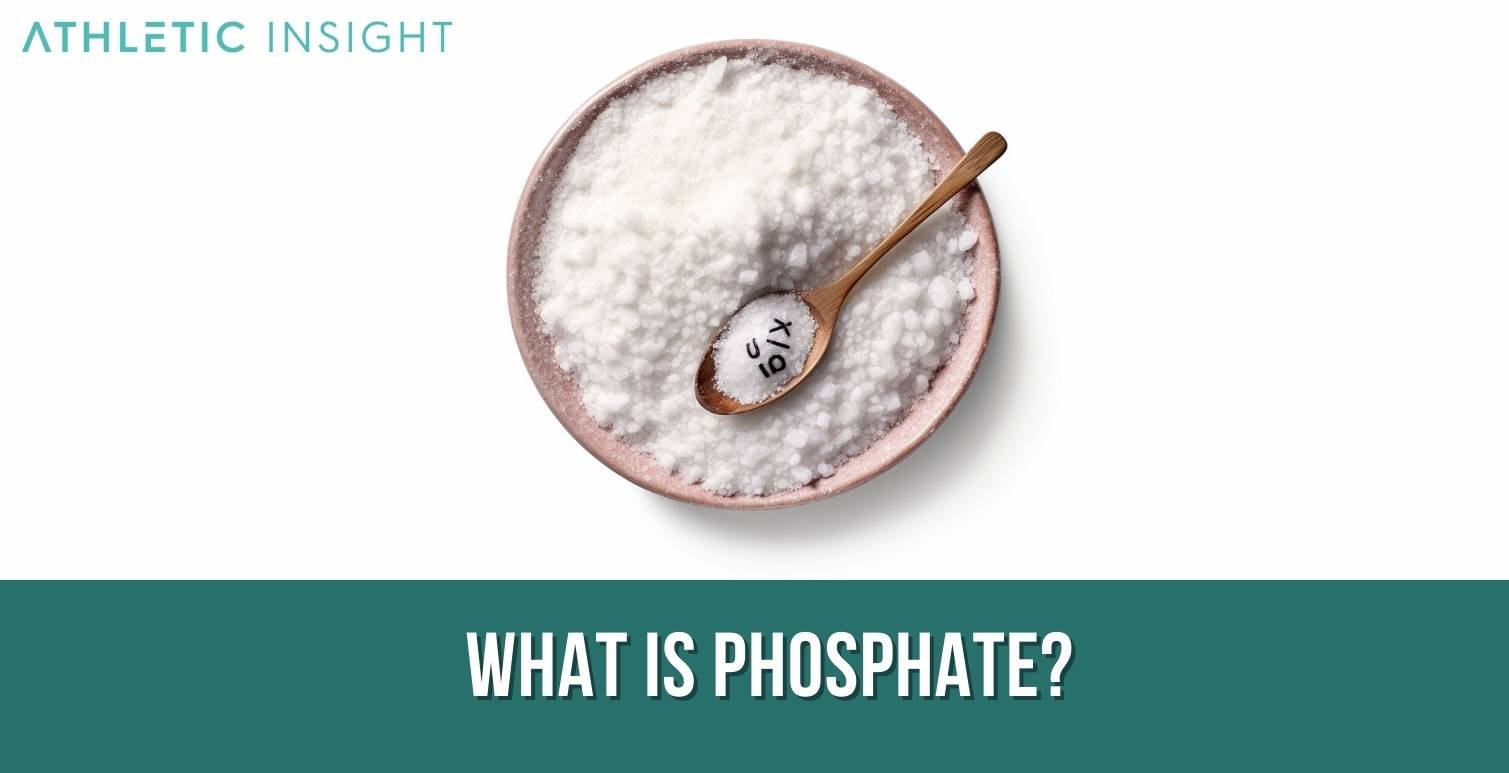Phosphate, denoted by the chemical symbol PO4, holds pivotal roles across various scientific sectors. It spans disciplines such as nutrition, biology, and chemistry, marking its significance as an essential element. As a naturally occurring compound, phosphate is a part of everyday life in ways one might not readily realize, offering profound impacts on health, industry, and the environment.
A deeper exploration into phosphate reveals its multifaceted nature. Understanding its characteristics, the unique functions it performs in the human body, and its applications in various industries sheds light on the indispensability of this humble compound. This exploration endeavors to demystify phosphate and expound on its importance and uses, thereby providing a holistic view of this crucial chemical compound.
What is Phosphate?
Phosphate is a chemical derivative of phosphoric acid. Each molecule of phosphate contains one atom of phosphorus, represented by the letter P, and four atoms of oxygen, denoted by the letter O, making its chemical formula PO4. Phosphate molecules carry a negative charge and often bind with positively charged particles to form phosphate salts.

As a polyatomic ion, phosphate exhibits distinctive characteristics that are instrumental in various natural and industrial processes. It is exceptionally stable due to its resonance structures and is highly soluble in water, which makes it easily accessible to organisms in nature. Moreover, its ability to form multiple bonds with other elements and compounds allows it to participate in a wide range of chemical reactions, contributing to its extensive utility in biological and industrial contexts.
Are Phosphate and Phosphorus the same?
No, Phosphorus and phosphate are not synonymous or the same. Phosphorus is a chemical element represented by the symbol P on the periodic table, while phosphate is a compound derived from phosphoric acid, featuring phosphorus atoms bonded with oxygen atoms. Hence, while phosphorus is an integral component of phosphate, the two are not interchangeable and each has unique properties and roles.
Phosphorus is a fundamental element found in nature, while phosphate, or more specifically, phosphate ions, are a derivative of phosphorus. Phosphates are involved in numerous biological functions, from DNA synthesis to energy transfer in cells, emphasizing their essential role in life processes. Meanwhile, elemental phosphorus has applications in various industries, such as the manufacture of fertilizers and detergents.
What is the importance of Phosphate in the body?
Phosphate plays several vital roles in the body, essentially contributing to general health and well-being. One of its primary functions is in the formation of bones and teeth. Phosphate, along with calcium, creates the hard structure of these body parts, ensuring their strength and durability.

Phosphate is also a crucial player in the body’s energy system. It is a part of adenosine triphosphate (ATP), a compound that cells use to store and release energy. Therefore, every time a body cell requires energy, it breaks down ATP, freeing the energy stored within and allowing the cell to carry out its functions. This process underscores the necessity of phosphate in our daily energy requirements.
How does the body absorb and utilize Phosphate?
Phosphate absorption primarily occurs in the small intestine. The process is complex and involves the coordinated action of multiple transporters and enzymes. Vitamin D plays a significant role in phosphate absorption; it promotes the synthesis of transport proteins responsible for phosphate uptake.
Once absorbed, phosphate ions circulate in the blood, with the kidneys regulating their levels. Most of the phosphate ions are stored in bones and teeth in the form of calcium phosphate. The rest participate in various body processes, such as energy production and regulation of acid-base balance. Through these mechanisms, the body effectively absorbs and utilizes phosphate, ensuring that this crucial compound is available for a wide range of physiological functions.
Does Phosphate help with muscle growth?
Phosphate does play a role in muscle growth and function, but not directly. Its primary contribution to muscle health is through its role in ATP production, the main energy source for muscle contraction. When muscles work, such as during exercise or physical activity, they require energy. This energy comes from ATP, which, when broken down, releases energy for muscle cells to use.
Phosphate is also a component of creatine phosphate, a compound that serves as a reserve of high-energy phosphates in muscle cells. During intense physical activity, when the demand for ATP outpaces its production, creatine phosphate can quickly donate its phosphate group to produce more ATP. Hence, adequate phosphate levels can indirectly support muscle growth and function by ensuring a sufficient energy supply.
Does Phosphate strengthen bones?
Yes, phosphate is integral to bone health. Bones are not mere rigid structures providing support to the body; they are dynamic organs constantly undergoing remodeling, a process involving both bone formation and resorption. Phosphate, in combination with calcium, forms the mineral component of bones, known as hydroxyapatite, which gives bones their hardness and rigidity.
Adequate phosphate levels are essential for optimal bone mineralization, a process that strengthens bones. However, it’s worth noting that the relationship between phosphate and bone health is complex and finely balanced. Both excessively low and high levels of phosphate can adversely affect bone health. Hence, maintaining appropriate phosphate levels is crucial for strong, healthy bones.
How does Phosphate interact with Minerals?
Phosphate interacts with several minerals within the body, playing a key role in maintaining mineral balance. The most notable interaction is with calcium. Phosphate and calcium combine to form hydroxyapatite, the mineral matrix that lends strength and structure to bones and teeth.
Simultaneously, the balance between phosphate and calcium is crucial for various physiological processes. The parathyroid hormone regulates this balance; when phosphate levels rise in the blood, the parathyroid gland releases this hormone, which decreases phosphate reabsorption in the kidneys, leading to more phosphate being excreted in the urine.
Phosphate also interacts with magnesium, another essential mineral. Some enzymes require both magnesium and phosphate to function correctly. These complex interactions underscore phosphate’s critical role in mineral homeostasis in the body.
How do Vitamins and Phosphate work together?
Phosphate interacts with several vitamins, most notably with vitamin D. Vitamin D aids in the absorption of phosphate in the intestines and its reabsorption in the kidneys, thereby regulating phosphate levels in the body. Moreover, vitamin D promotes the intestinal absorption of calcium, another mineral closely associated with phosphate in bone health.
Phosphate is also a component of vitamin B-complex. As phosphates, these vitamins are involved in numerous body functions, including energy production, nerve function, and the metabolism of fats, proteins, and carbohydrates. Given these interactions, it’s evident that vitamins and phosphate work together in concert to support various physiological processes.
What are the uses of Phosphate?
Phosphate plays a crucial role in numerous biological and industrial applications. In biological systems, it is involved in the formation of bones and teeth, energy production, and regulation of protein function. In the form of adenosine triphosphate (ATP), phosphate is responsible for energy storage and transfer within cells, playing a vital role in various biological processes.
Phosphate is a significant component of DNA and RNA, holding the helical structure together. Phosphate groups also form part of various coenzymes that are essential for metabolic reactions. In the context of the diet, phosphate is needed to balance and metabolize different nutrients, including vitamins and minerals.
From an industrial perspective, phosphates are used in a myriad of ways. They serve as fertilizers in agriculture, softening agents in water treatment processes, and additives in detergents. Phosphates also find use in the food industry as preservatives and acidity regulators. In medical applications, phosphates are used in certain pharmaceuticals and as buffering agents in biological research.
How can Sports Athletes use Phosphate?
Sports athletes can use phosphate to boost their performance, particularly in endurance events. Several studies suggest that phosphate loading, which involves supplementing with high levels of phosphate for several days before an event, may enhance athletic performance.

Phosphate supplements can increase the concentration of 2,3-diphosphoglycerate (2,3-DPG) in red blood cells, enhancing the delivery of oxygen to muscles during exercise. Moreover, they can potentially increase ATP levels, providing additional energy for muscle contractions. However, the effectiveness of phosphate loading remains a topic of ongoing research, with inconsistent results across different studies.
While some athletes might find benefits from phosphate supplementation, it’s important to consider that excessive phosphate intake can lead to adverse effects, including renal damage and electrolyte imbalances. Athletes should, therefore, seek professional advice before starting any supplementation regime.
How can people include Phosphate in their Diet?
Phosphate is widely present in various foods, making it easy to include in the diet. It naturally occurs in protein-rich foods such as meats, poultry, fish, eggs, and dairy products. Phosphate is also present in grains, nuts, beans, and vegetables like potatoes and broccoli.
In addition to natural sources, phosphate is commonly added to processed foods as a preservative or to enhance flavor. These include soft drinks, canned foods, and processed meat. However, it’s essential to keep in mind that a diet high in processed foods can lead to excessive phosphate intake, which can have health implications.
While the typical diet is often sufficient to meet phosphate needs, certain groups may require supplementation. These include people with certain health conditions, like chronic kidney disease, or those on specific medications that interfere with phosphate absorption. In such cases, it’s crucial to consult a healthcare provider to determine appropriate phosphate intake.
What are the food sources that contain Phosphate?
There is a wide range of food sources that contain phosphate. Some of the most phosphate-rich foods include dairy products, protein sources, legumes and nuts, whole grains, fruits and vegetables.
- Dairy products: Milk, cheese, and yogurt are rich in phosphate.
- Protein sources: Meats such as beef, chicken, and turkey, as well as fish like salmon and sardines, contain high amounts of phosphate.
- Legumes and nuts: Lentils, chickpeas, almonds, and peanuts are excellent plant-based sources of phosphate.
- Whole grains: Foods like whole wheat bread, brown rice, and oats are good sources of phosphate.
- Fruits and vegetables: Bananas, oranges, potatoes, and broccoli all contain moderate amounts of phosphate.
Remember that while it’s crucial to ensure an adequate intake of phosphate, balance is key. Overconsumption, often linked with the intake of phosphate-rich processed foods and drinks, can have negative health implications.



